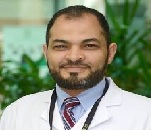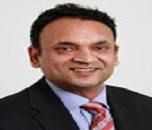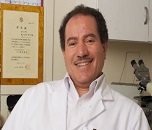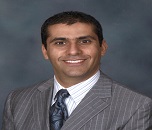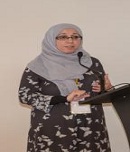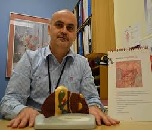Theme: Tracking trends and Shaping future
Gastroenterology 2019
- About Conference
- Session / Tracks
- Market Analysis
- Past Conference Report
- Keynote Speaker
- Chairs/Co-Chairs
- Moderators
- Sponsors/Exhibitor
- Media Partners
With the amalgamation of peerless speakers of Gastroenterology 2018 ConferenceSeries LLC Ltd is privileged to announce 18th International Conference on Gastroenterology and Endoscopy is scheduled during March 18-19, 2019 at Chicago, USA. The scientific program of Gastroenterology 2018 includes a wide range of Keynote presentations, Plenary talks, Video presentations, Symposia, Workshops, Exhibitions, Poster presentations and e-posters.
ConferenceSeries LLC Ltd Organizes 3000+ Global Events Every Year across USA, Europe & Asia with support from 1000 more scientific societies and Publishes 700+ Open access journals which contains over 100000 eminent personalities, reputed scientists as editorial board and organizing committee members. The conference series LLC Ltd website will provide you list and details about the conferences organize worldwide.
Why to attend?
With members from around the world focused on learning about gastroenterology and its advances in making a better health; this is your best opportunity to reach the largest assemblage of participants from the gastroenterology community. Conduct presentations, distribute information, meet with current and potential scientists, make a splash with new drug developments, and receive name recognition at esteemed event. World-renowned speakers, the most recent techniques, developments, and the newest updates in gastroenterology are the hallmarks of this conference. This gastroenterology conference will deliver a comprehensive overview of the latest information, insights and practices in gastroenterology, endoscopy and more. The agenda aims to provide a forum for all gastroenterologists, internal medicine specialists within the region to exchange ideas, discuss innovative methods and review new developments within the field of gastroenterology. The program addresses the hottest topics as well as new medications on the market and innovative surgical techniques discusses the latest research outcomes and technological advancements in the field and brings together leading gastroenterologists, surgeons, physicians, research scholars, students along with industrial and pharma professionals to exchange share their views on critical aspects of gastroenterology research.
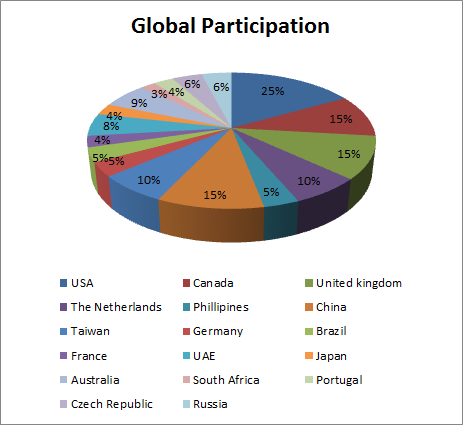
Track 1: Gastrointestinal disorder
Gastrointestinal disorder includes constipation, irritable bowel disorder, anal fistulas, colitis and cancer. Functional disorders are those in which the gastrointestinal (GI) tract looks normal but doesn't work properly. They are the most common problems affecting the GI tract (including the colon and rectum). Constipation and irritable bowel syndrome (IBS) are two common examples. There are several factors they are eating a diet low in fibre, not enough exercise, Traveling or other changes in routine, eating large amounts of dairy products, Stress, Resisting the urge to have a bowel movement
Related Conferences:
Gastroenterology Conference| Liver Congress
Track 2: Gastrointestinal Oncology/ Radiology
Gastrointestinal Oncology Branch was established to integrate and synergize multidisciplinary clinical pertaining to cancers of the lungs, chest cavity and gastrointestinal tract. Our team approach to thoracic and gastrointestinal malignancies is designed to hasten the development of novel treatments for a wide range of cancers that affect more than a half million patients per year.
Gastrointestinal radiology has expanded its scope beyond conventional abdominal radiography, barium studies, and cholecystography. Ultrasonography allows imaging of solid abdominal organs and the intestine without the use of radiation. Computed tomography now allows comprehensive assessment of abdominal and pelvic inflammatory and infectious processes, obstruction, tumor detection and staging, and display of vasculature and blunt trauma effects that were not possible 50 years ago. Barium studies of the gastrointestinal tract, enteroclysis for small-bowel assessment, and conventional radiography still have a role despite the extensive use of fiberoptic endoscopy.
Related Conferences:
Gastroenterology Conference| Liver Congress
Track 3: Neuro gastroenterology
Neurogastroenterology includes the study associated with brain, the alimentary canal, and their interactions with significance to the comprehension and management of gastrointestinal motility and functional GI disorders. Neurogastroenterology concentrates on the functions, malfunctions, and the malformations of the sympathetic, parasympathetic, and enteric divisions of the digestive tract.
Related Conferences:
Gastroenterology Conference| Liver Congress
Track 4: Pancreatic cancer
Cancer that develop within pancreas fall into two types they are: cancer of endocrine pancreas and cancer of exocrine pancreas. Islets of Langerhans cancer grow slowly compared to exocrine cancer. It release hormones in the blood stream and further characteristic by hormone they produce (insulin, glucagon, gastric).The subtypes include: Squamous, Pancreatic progenitor, Aberrantly differentiated endocrine exocrine, Immunogenic. Symptoms of exocrine pancreatic cancer include: jaundice, dark urine, itchy skin, light-coloured stools, and pain in the abdomen or the back. Pancreatic cancer is diagnosed by four different stages they are :
Stage 0: Cancer is found only in the lining of the pancreatic ducts. it also is called carcinoma in situ
Stage I: Cancer has formed only in the pancreas.
Stage II: Cancer may have spread or advanced to nearby tissue and organs and lymph nodes near the pancreas.
Stage III: Cancer has spread or progressed to the major blood vessels near the pancreas and may have spread to nearby lymph nodes.
Stage IV: Cancer can be of any size and has spread to reserved organs, such as the liver, lung, and peritoneal cavity. It may also spread to organs and tissues near the pancreas or to lymph nodes. It is also called as end stage of pancreas
Related Conferences:
Gastroenterology Conference| Liver Congress
Track 5: Diabetes mellitus
Diabetes mellitus prevents your body from properly using the energy from the food you eat. It cause damage to the pancreas, an organ that produces the hormone insulin. There are two main types of diabetes they are type 1 and type 2. It is caused due to various causes they are Autoimmune disease , High blood pressure , Abnormal blood cholesterol or triglyceride levels , Age, Alcohol , Smoking , Pregnancy.
Related Conferences:
Gastroenterology Conference| Liver Congress
Track 6 : Cirrhosis and its complication
Cirrhosis is defined histologically by the presence of severe fibrosis with distortion of vascular architecture and presence of regenerative nodules. Main causes are Alcohol abuse, Chronic viral hepatitis B and C, Autoimmune hepatitis , Nonalcoholic steatohepatitis , autoimmune diseases.
Related Conferences:
Gastroenterology Conference| Liver Congress
Track 7: Gastrointestinal Surgery
Gastrointestinal surgery covers two claims to fame of general surgery (upper gastrointestinal surgery and colorectal surgery). upper gastrointestinal surgery covers surgery on the stomach, throat (neck),small digestive tract, liver, gall bladder and pancreas,. There is a vast supporting multidisciplinary group which incorporates anesthetists, endocrinologists, gastroenterologists, analysts, oncologists, radiologists and histopathologists.to play out this surgery. The colorectal administration contains four advisors, a partner authority, a staff review specialist, two master enlistment centers and three colorectal expert attendants together with an extensive supporting multidisciplinary group. The greater part of elective colorectal patients are offered laparoscopic (keyhole) surgery and an upgraded recuperation program.
Related Conferences:
Gastroenterology Conference| Liver Congress
Track 8: Digestive Diseases and Treatment Advances in Digestive Diseases
A digestive disease is any health problem that occurs in the digestive tract. Conditions may range from mild to serious. Some common problems include: Amylase: Enzyme produces in the pancreas and salivary glands that helps in the digestion of starches from the diet. Blood amylase levels may be increased in patients who have pancreatitis or salivary problems like Sjogren’s disease. Amyloidosis: A group of diseases that results from the abnormal deposition of a protein called amyloid in tissues and organs. Bezoar: A clump of food or hair in the digestive tract. Celiac disease resulting from the abnormal reaction by the body's immune system to gluten, a protein found in grains such as wheat, rye, and barley and other foods. Symptoms include diarrhea, anaemia, and weight loss.
The complexity and magnitude of medical advances in the management of digestive diseases make it ever more challenging for clinicians to apply this tremendous amount of information to their practice. This activity will provide learners with a comprehensive overview of the state-of-the art advances in the diagnostic, therapeutic, and preventive modalities of digestive diseases based on the latest evidence, literature, and clinical research. New Advances gives clinicians a superb update on cutting-edge developments in gastroenterology and hepatology. Interact directly with our clinical faculty and learn about practical approaches to problems.
Related Conferences:
Gastroenterology Conference| Liver Congress
Track 9: Gastrointestinal Endoscopy
Endoscopy (looking inside) is used in medicine to look inside the body. Gastrointestinal endoscopy, a specialist can see within coating of your stomach related tract. This examination is performed utilizing an endoscope-an adaptable fiberoptic tube with a minor TV camera toward the end. The camera is associated with either an eyepiece for coordinate viewing. The endoscope permits finding of gastrointestinal (GI) illness as well as treatment as well. Endoscopy has a few names, contingent upon which segment of your stomach related tract, Colonoscopy: This method empowers the specialist to see ulcers, aroused mucous covering of your digestive system, anomalous developments and seeping in your colon, or huge bowel Endoscopy: Endoscopy is a current symptomatic device that enables a specialist to see your little entrails.
Related Conferences:
Gastroenterology Conference| Liver Congress
Track 10 : Metabolic liver diseases/ diagnosis
Metabolic liver disease is caused due to abnormal chemical reactions in the body that disrupt the body’s metabolism. When this happens, the body has too much of some substances or too little of others to stay healthy. There are several kinds of metabolic liver disease in children they are Crigler-Najjar syndrome: a disease in which the body cannot break down bilirubin. Dubin-Johnson syndrome: a disease in which the body is unable to remove bilirubin from the liver. Gilbert’s disease: a disease that affects the way bilirubin is processed by the liver. Hemochromatosis: a disease in which too much iron builds up in the body. Wilson disease: a disease in which too much copper builds up in the body.
Related Conferences:
Gastroenterology Conference| Liver Congress
Track 11: Clinical Nutrition in Gastrointestinal Disease
Dietary adjustments in gastrointestinal tract issue are intended to ease side effects, amend supplement lacks, and, when conceivable, address the essential driver of trouble. In malady, evaluation of the nature and seriousness of the essential gastrointestinal issue goes before focused therapeutic, nourishment, and different types of treatment. Expanded admissions of protein, vitamins, minerals, and electrolytes very often lead to supplements lost because of disabled stomach related and absorptive limit. Consistency, food recurrence, and different attributes of the eating routine might be changed to fit the patient's needs. Therapeutic nourishment treatment (MNT) for all patients with maladies of the digestion tracts must be individualized. The primary emphasis in dietary management is the reduction of carbohydrate foods that are likely to be mal absorbed and fermented, including legumes, soluble fiber, resistant starches, and simple sugars such as fructose and alcohol sugars.
Related Conferences:
Gastroenterology Conference| Liver Congress
Track 12: Genetics and Molecular Biology in Gastroenterology
New approaches through Molecular biology and Genetics towards understanding regulation of growth and adaptation of the small intestine by the isolation and characterization of genes and complementary DNAs (cDNAs) encoding gastrointestinal peptides, growth factors and their receptors are made possible. Nucleotide sequencing provides prerequisite structural information. Analyses of intestinal growth in transgenic animals that overexpress or under express growth factor or receptor genes provides direct information about peptide effects on growth. Analyses of gene expression by quantitation and localization of mRNAs provide information about correlations between local alterations in peptide or receptor synthesis and intestinal growth.
Related Conferences:
Gastroenterology Conference| Liver Congress
Track 13: Gastrointestinal Immunology
The immune reaction of the gastrointestinal tract to the external stimulus or the failure to respond is an important aspect of the function of gastrointestinal tract system. The area of gastrointestinal disorders is currently having development in terms of research. Scientific progress in the area of gut immune system and the immune abnormalities includes the latest developments in organ transplantation of the liver and gut, HIV infection of the gut, and the recently discovered disease H. pylori gastritis.
Related Conferences:
Gastroenterology Conference| Liver Congress
Track 14: Inflammatory bowel disease
Inflammatory bowel disease (IBD) involves chronic inflammation of all or part of your digestive tract. IBD primarily includes ulcerative colitis and Crohn's disease. Both usually involve severe diarrhea, pain, and fatigue and weight loss. IBD can be debilitating and sometimes leads to life-threatening complications. Types of IBD are Ulcerative colitis, Crohn's disease, Collagenous Colitis, lymphocytic colitis etc. Although inflammatory bowel disease usually isn't fatal, it's a serious disease that, in some cases, may cause life-threatening complications.
Related Conferences:
Gastroenterology Conference| Liver Congress
Track 15: Gastrointestinal Diseases during Pregnancy and Lactation
Pregnant women are more vulnerable to infections, which often causes complications in their pregnancies. Febrile illness along with acute intestinal infections may in some cases cause miscarriage or premature labor. Certain infections have been reported to have caused miscarriage; however, there is no concrete evidence of common gastrointestinal disorders to cause miscarriage or premature labor. If the infection progresses to a critical stage, the fetus is at high risk from both the infection and also the subsequent treatment and antibiotics. Listeriosis is one such infection that can directly harm the fetus, as the organism can directly cross the placenta due to its intracellular lifecycle and is fatal to the neonate. There are such infections that can cause severe illness to the mothers, viz., E. coli, Shigellosis, Clostridium difficile, Cholera, Cryptosporidium spp., Giardia lamblia, and Entamoeba spp. In general, pregnant women are susceptible to constipation, diarrhea, fecal incontinence, and hemorrhoids due to various structural, hormonal and lifestyle changes during pregnancy.
Related Conferences:
Gastroenterology Conference| Liver Congress
Track 16: Colorectal Diseases
Colorectal Diseases (CRD) include a broad spectrum that varies from benign lesions to malignant and cancerous masses. CRD can be investigated by colonoscopy. Some of these diseases are highly preventable with timely screening and appropriate planning by the healthcare system. treatments for patients suffering from various colon and rectal diseases, such as annual fissures, rectal prolapse, fecal incontinence, ulcerative colitis, and more can be treated using the advanced procedures of colorectal surgery.
Related Conferences:
Gastroenterology Conference| Liver Congress
Track 17: Pediatric Gastroenterology
Children are not just small adults. Their bodies are growing and have unique medical needs. They usually express their concerns differently than adults. Pediatric Gastroenterology created as a sub-forte of pediatrics and gastroenterology. It is worried about treating the gastrointestinal tract, liver and pancreas of kids from earliest stages until age eighteen. The important illnesses it is worried about are intense loose bowels, tireless spewing, gastritis, and issues with the improvement of the gastric tract A pediatrician can give treatment to numerous gastric sicknesses, however ceaseless maladies, related with the nourishment of the youngsters, the pancreas or the liver should be dealt with by a master.
Related Conferences:
Gastroenterology Conference| Liver Congress
Track 18: Gastrointestinal Tract Imaging
Imaging turns out to be increasingly critical for every single clinical claim to fame, including gastroenterology. This issue is concentrating on some extremely intriguing and new utilizations of imaging techniques in liver, biliary tract, and stomach related tube pathology. Atomic imaging is a novel field in gastroenterology that utilizations fluorescently named tests to explicitly feature neoplastic sores on the premise of their sub-atomic mark. The advancement of sub-atomic imaging has been driven by the need to enhance endoscopic finding and by advance in focused treatments in gastrointestinal oncology to give individualized treatment, which concurs with advance in endoscopy methods and further scaling down of location gadgets.
Related Conferences:
Gastroenterology Conference| Liver Congress
Track 19: Obesity or Bariatric Surgery
Obesity has become a global health problem that contributes to numerous life-threatening and disabling diseases, such as type 2 diabetes mellitus and coronary artery disease.
Bariatric surgery (weight loss surgery) includes a variety of procedures performed on people who have obesity. This is done by reducing the size of the stomach with a gastric band or through removal of a portion of the stomach or by resecting and re-routing the small intestine to a small stomach pouch. The U.S. National Institutes of Health prescribes bariatric surgery for corpulent individuals with a body mass record (BMI) of no less than 40, and for individuals with BMI of no less than 35 and genuine coinciding therapeutic conditions.
Related Conferences:
Gastroenterology Conference| Liver Congress
Track 20: Intestinal Rehabilitation
Intestinal Rehabilitation mainly deals with the process of restoring enteral autonomy and thus allowing freedom from parenteral nutrition usually by means of dietary, medical and occasionally surgical strategies. Intestinal rehabilitation occurs as a consequence of enhanced bowel adaptation or short bowel syndrome. A coordinated team of gastroenterologists, surgeons and nutritionists provide long-term care to Patients with short or malformed intestines.
Related Conferences:
Gastroenterology Conference| Liver Congress
Track 21: Gastrointestinal Nursing
Gastrointestinal Nursing is a month to month peer-checked on nursing diary covering research and clinical work on the act of gastrointestinal nursing. Gastrointestinal Nursing is fundamental perusing though nurture spend significant time in gastrointestinal couldn't care less to give the most ideal care to their patients. It concentrates on every one of the strengths in the field, including stoma mind, endoscopy, nourishment and coloproctology nursing, and looks at themes, for example, bad tempered inside disorder, Cohn’s illness, obstruction, incontinence and PEG sustaining.
Related Conferences:
Gastroenterology Conference| Liver Congress
Track 22: Gastrointestinal pharmaceuticals
Gastrointestinal pharmaceuticals are separated into two general portions: medicine gastrointestinal pharmaceuticals and OTC gastrointestinal pharmaceuticals. Essentially, the market for gastrointestinal diagnostics, testing and antibodies is partitioned into three general segments. Diagnostics and testing market, Medical gadgets (endoscopy), vaccines. Diagnosing and treating complex gastrointestinal issues and utilitarian stomach related disarranges requires both broad examination and preparing with respect to the doctor, and in addition access to the most recent endoscopic apparatuses and innovation.
Related Conferences:
Gastroenterology Conference| Liver Congress
Track 23: Veterinary Gastroenterology
Animals also get infected with various microorganisms that make them ill. Apart from the regular bout of veterinary gastrointestinal infections, they also get infected with the regular infections which in turn harm humans, especially their owners and kids. The diseases that are passed on from animals to humans are called zoonotic diseases, which often cause an outbreak. Out of numerous types of zoonotic diseases, enteric zoonotic diseases affect the gastrointestinal tract of both animals and humans. Common microorganisms that cause gastric infections include Salmonella, E. coli, and Campylobacter.
Related Conferences:
Gastroenterology Conference| Liver Congress
Track 24: Recent Advance Treatment in Gastroenterology
•Probiotics are being utilized with incrementing frequency as a treatment for several medical conditions such as allergic diseases, bacterial diseases, renal diseases & renal cancer as well as urinary tract infections, & aversion of dental caries/respiratory infections. Probiotics are utilized as a treatment for a variety of gastrointestinal disorders.
•The utilization of antibiotic therapy spreads to rise as a result of accumulations of evidence of aid in both primary & secondary treatment strategies for gastrointestinal disease and in gastrointestinal complications such as bleeding & ulceration. These jeopardies may be further promoted by the use of other adjunctive medications, such as corticosteroids, anticoagulants.
•New techniques to prevent and diagnose viral hepatitis C virus (HCV) are evolving exponentially. With the prelude of interferonâ€α monotherapy predicated on triple therapies with pegylated interferonâ€α and ribavirin, it increases the percentage of curing patients infected with HCV genotype-1 approximately 70%.
Related Conferences:
Gastroenterology Conference| Liver Congress
Track 25: Entrepreneurs Investment Meet
Gastro Meet 2018 facilitates a unique platform for transforming potential ideas into great business. The meeting creates a global platform aimed to connect global Entrepreneurs, Proposers and the Investors in the field of Medicine, Technology and many more. Its allied sciences to develop and facilitate the most optimized and viable business for engaging people in to constructive discussions, evaluation and execution of promising business.
Related Conferences:
Gastroenterology Conference| Liver Congress
Market Analysis Report
Gastroenterology deals not just with the gastrointestinal issue or contaminations of the GI tract and adornment organs, yet in addition with the gastrointestinal treatments, medications, therapeutics, and gadgets that are utilized as a part of the diagnosing of the diseases and illnesses of the GI tract. As indicated by a current overview, 6 out of 10 individuals comprehensively, experience the ill effects of some type of the gastrointestinal issue at any given point in time. Fundamentally, the reasons for the commonness of the incessant stomach related and related sicknesses are because of way of life changes, absence of activity, overeating, sorrow, uneasiness, and financial and enthusiastic elements.
According to various market reports, the gastrointestinal drugs market was valued at will grow from the current $19.79 billion in 2016 at a CAGR of 4.9% to reach $29.01 billion by 2024. The rapid growth of ulcerative colitis, enteritis, and inflammatory chronic diseases and related bowel disorders has increased the demand of gastrointestinal drugs, especially; the anti-inflammatory, antacids, antidiarrheal, laxatives, antiemetic and anti-nauseants, and antispasmodic, and these drugs have witnessed a four-fold growth in the market.
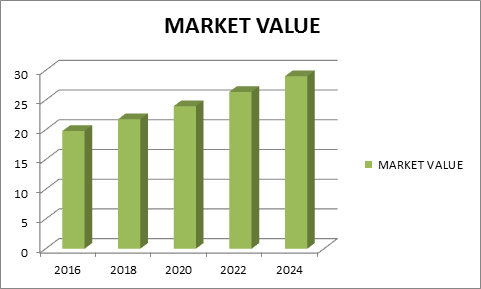
The global market for gastrointestinal disorder therapeutics and diagnostics reached $49.6 billion in 2015. This market is expected to grow from nearly $51.8 billion in 2016 to $63.8 billion in 2021 at a compound annual growth rate of 4.3% from 2016-2021.
As per the research report, the global gastrointestinal drugs market is anticipated to be worth US$61.1 billion by 2024. By drug class, acid neutralizers segment not led in the past, but is also expected to remain in the leading position in the coming years.
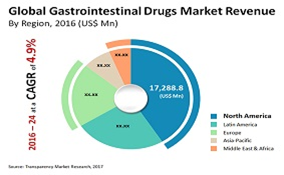
Market Growth of Gastroenterology Research:
The global market for gastrointestinal disorder therapeutics and diagnostics reached $49.6 billion in 2015. This market is expected to grow from nearly $51.8 billion in 2016 to $63.8 billion in 2021 at a compound annual growth rate of 4.3% from 2016-2021.
The prescription therapies market is expected to grow from $18.6 billion in 2016 to nearly $22.1 billion in 2021 at a CAGR of 3.5% for the period 2016-2021.
The diagnostics market over the next five years will grow from $17.7 billion in 2016 to $23.5 billion in 2021 at a CAGR of 5.9% for the period 2016-2021.
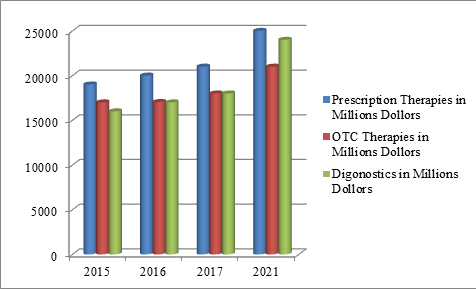
The rise in the instances of Cohn’s disease, inflammatory bowel disease, ulcerative colitis, and such other diseases is also expected to create a rise in demand for the gastrointestinal diseases market. The growth in the demand and sale for the gastrointestinal drugs across the developing and developed markets is also attributed to be one of the major driving factors for this market. The growing investments and the research & development activities by the key market players are also expected to play a vital role in the overall growth of this market. The major restraining factors for the market include advancements in the new alternative therapies and the regulatory restraints.
Market Growth of Endoscopy Research:-
Endoscopy market was valued at $0.593 billion in 2014 and is projected to reach $0.791 billion by 2020 growing at a CAGR of 5.91%. This report studies the global Endoscopy Equipment Market over the forecast period of 2013 to 2018. The market is estimated at $28.2 billion in 2013 and is expected to reach $37.9 billion by 2018, growing at a CAGR of 6.1% from 2013 to 2018.
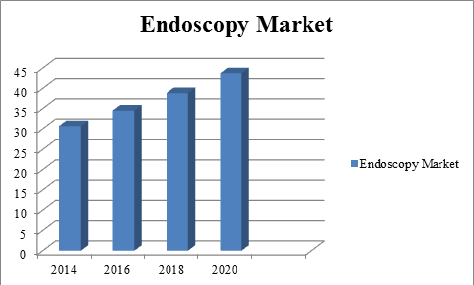
In 2013, the global endoscopy market was valued at $28.9 billion is projected to grow at a CAGR of 6.1% to reach $43.73 billion by 2020 and then thereafter with a CAGR of about 6.9% to reach the market value of $60.96 billion by 2025. With a total market value of $20 billion and $11 billion endoscopes and imaging systems have contributed about 40% of the total global endoscopy market. With ever increasing awareness of patients and physicians towards newer minimally invasive surgeries and diagnostic imaging, there is a positive growth and reception towards novel technologies due to innumerable advantages.
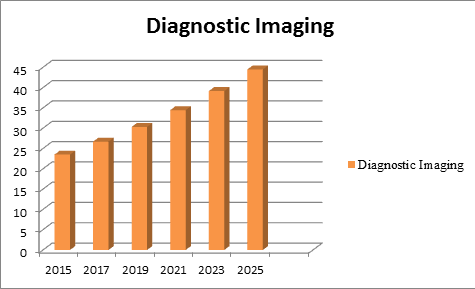
Major players in the global Endoscopy Equipment Market :
Ethicon (Johnson & Johnson ) (U.S.)
Olympus Corporation (Japan)
Boston Scientific, Inc. (U.S.)
Stryker Corporation (Japan)
Cook Medical Incorporated (U.S.)
Hoya Corporation (Pentax Medical System) (Japan)
Fujifilm Holding Corporation (Fujinon) (Japan)
Smith and Nephew, Inc. (U.S.) and Conmed Corporation (U.S.)
Major Associations & Societies Associated with Gastroenterology in worldwide:
- ASGE | American Society for Gastrointestinal Endoscopy | ASGE
- AGES -Indian Association of Gastrointestinal Endo Surgeons
- SGNA | Society of Gastroenterology Nurses and Associates
- ESGENA | The European Society of Gastroenterology and Endoscopy Nurses and Associates
- Indian Association of Surgical Gastroenterology
- American Society of Bariatric Physicians (ASBP)
- National Association for Colitis and Crohn's Disease (NACC) (UK)
- Crohn's & Colitis Foundation of America
- Society of American Gastrointestinal and Endoscopic Surgeons
- The Society of Gastroenterology Nurses and Associates
- British Society of Gastroenterology (BSG)
- The Bockus International Society of Gastroenterology
Major Universities associated with Gastroenterology in worldwide:
- IBS The University of Barcelona
- World Gastroenterology Organisation
- American College of Gastroenterology
- Medicine-Gastroenterology - University of Colorado
- Pediatrics - Gastroenterology - Stanford Medicine - Stanford University
- University of Pittsburgh
- Division of Gastroenterology & Hepatology – University of Virginia
- Gastroenterology and Hepatology: Department of Medicine: Feinberg
- Division of Gastroenterology - McMaster University
- Gastroenterology - Rush University Medical Center
Major Industries associated with Gastroenterology in worldwide:
- Covidien
- EndoChoice
- Frontier Healthcare
- Sun Pharmaceutical Industries Ltd.
- Alkem Laboratories
- Boston Scientific
- FUJIFILM Medical Systems
- Pentax Medical Company
- Olympus
- gMed
- Physicians Endoscopy
- US Endoscopy Group
Major Hospitals Associated with Gastroenterology in worldwide:
- Mayo Clinic
- Cleveland Clinic
- Johns Hopkins Hospital
- Massachusetts General Hospital
- Mount Sinai Hospital
- University of Chicago Medical Center
- Hospital of the University of Pennsylvania
- Ronald Reagan UCLA Medical Center
- New York-Presbyterian University Hospital of Columbia and Cornell
- Cedars-Sinai Medical Center
- UPMC-University of Pittsburgh Medical Center
- Barnes-Jewish Hospital/Washington University
- University of Michigan Hospitals and Health Centers
- Clarian Health
- Duke University Hospital
- University of Texas M.D. Anderson Cancer Center
PAST CONFERENCES
We gratefully thank all our wonderful Keynote Speakers, Speakers, Delegates, Students, Organizing Committee Members, Associations, Sponsors, Exhibitors and Media Partners for making our Past Gastroenterology Conferences (during 2015, 2016, 2017 & 2018 in USA Region) the best ever!
- 4th International Conference on Gastroenterology, July 20-22, 2015
Venue: Hyatt Regency Orlando International Airport, 9300 Jeff Fuqua Blvd, Orlando, Florida, USA, 32827
- 8th International Conference on Clinical Gastroenterology & Hepatology, October 3-5, 2016
Venue: Holiday Inn, Toronto International Airport , Address: 970 Dixon Road, Rexdale Toronto, ON M9W 1J9, Canada
- ​​13th International Conference on Clinical Gastroenterology, Hepatology and Endoscopy, November 13-14, 2017
Venue: Renaissance Las Vegas Hotel, 3400 Paradise Road | Las Vegas, NV 89169, Las Vegas, USA
- 12th Global Gastroenterologists Meeting, March 15-16, 2018
Venue: Hotel Augusta Barcelona Valles, AP-7, Km 12 5, 08410, Barcelona, Spain
////****////Mark your calendars for the upcoming conference, we are hoping to see you soon!////****////
World Gastroenterology 2019
>|| Past Conferences Keynote Speakers ||<
We thank all our Honorable Keynote Speakers for their valuable presence, namely
- David H. Van Thiel, Rush University Medical Center, the USA
- Larry Good, Good Pharmaceutical Development Co. LLC, the USA
- Dr. Maxwell M Chait, Columbia University, USA;
- Dr. Khalil N Bitar, Wake Forest University, USA;
- Dr. Steven Teich,
- Dr. Debby Laukens, Ghent University, Belgium
- Dr. Larry I Good, Good Pharmaceutical Development Company, USA
- Dr. Ahmed Zaki Helaly, Alexandria University, Egypt
- Dr. Fratila Ovidiu, University of Oradea, Romania
- Dr. Patrick G Sullivan, University of Kentucky, USA
- Dr. Fawad Javed, University of Rochester, USA
- Dr. Anil K Mandal, University of Florida, USA
- Dr. Maria Faresjo, Jonkoping University, Sweden
- Dr. Christain Dani, French National Institute for Health and Medical Research, France
- Dr. Osman Amine El-Labban, Al Zahra Private Hospital, UAE
- Dr. Khalid Alnemer, AL-Imam University, Kingdom of Saudi Arabia
- Dr. Mohamed El-Far, Mansoura University, Egypt
>|| Past Conferences Chairs/Co-Chairs ||<
We extend our appreciation towards our Chairs and Co-Chairs of the sessions, namely
- Mary Es. Beaver, Texas Centre of Voice and Swallowing, USA
- Na Li, The Ohio State University, USA
- Abigail Basson, University of Western cape, South Africa
- Joshua Ko, Hong Kong Baptist University, China
- Nisreene Mahmoud, Cairo University, Egypt
- Mrinal Pahwa, Sir Ganga Ram Hospital, India
>|| Past Conferences Moderators ||<
Conference series LLC Ltd expresses its gratitude to the conferences Moderators, for taking up the responsibility to coordinate during the sessions, we are indebted to your support, namely
- Dr. Anjana Vasudevan
- Naomi Walsh, National Institute for Cellular Biotechnology, Ireland
- Dr. Maxwell M. Chait, Columbia University, USA
- Dr. Abigail Basson, University of Western Cape, South Africa
- Bruno Doiron, University of Texas Health Science Center, USA
- Alessandro Antonelli, Universita Di Pisa, School of Medicine, Italy
- Adel Ahmed Mohmed Ahmed Elnaggar, Ain Shams University, School of Medicine, Egypt,
- Dr. Fawad Javed, University of Rochester, USA
- Jose Mario F. De Oliveira, Universidade Federal Fluminense, Brazil
>|| Past Conferences Sponsors/Exhibitors ||<
A very special thanks to our Sponsors, Ad-Sponsor and Exhibitors to have bestowed and their faith in collaborating with us to make this event a fruitful one. We hope you continue your support in our future endeavors.
- AbbVie
- PENTAX Medical
- AMT Surgical
- Qualisys Diagnostics Inc.
- ChiRhoClin, Inc.
- Avexis, and more…
>|| Past Conferences Media Partners ||<
Conference series LLC Ltd offers its heartfelt appreciation to organizations such as Kindcongress, Bentham Science, HFSA, Tabeeby, Biohunter, Doctorksa, PharmaVision, Pink Medico, Medgadget, Event listing sites and other eminent personalities who supported the conferences by promoting in various modes online and offline which helped the conferences reach every nook and corner of the globe.
///****////Mark your calendars for the upcoming conference, we are hoping to see you soon!////****////
World Gastroenterology 2019
Conference Highlights
- Gastrointestinal Disorder
- Gastrointestinal Oncology/ Radiology
- Neuro gastroenterology
- Pancreatic cancer
- Diabetes mellitus
- Cirrhosis and its complication
- Gastrointestinal Surgery
- Digestive Diseases and Treatment Advances in Digestive Diseases
- Gastrointestinal Endoscopy
- Metabolic liver diseases/ diagnosis
- Clinical Nutrition in Gastrointestinal Disease
- Genetics and Molecular Biology in Gastroenterology
- Gastrointestinal Immunology
- Inflammatory bowel disease
- Gastrointestinal Diseases during Pregnancy and Lactation
- Colorectal Diseases
- Pediatric Gastroenterology
- Gastrointestinal Tract Imaging
- Obesity or Bariatric Surgery
- Intestinal Rehabilitation
- Gastrointestinal Nursing
- Gastrointestinal Therapeutics
- Veterinary Gastroenterology
- Recent Advance Treatment in Gastroenterology
- Entrepreneurs Investment Meet
To share your views and research, please click here to register for the Conference.
To Collaborate Scientific Professionals around the World
| Conference Date | March 18-19, 2019 | ||
| Sponsors & Exhibitors |
|
||
| Speaker Opportunity Closed | |||
| Poster Opportunity Closed | Click Here to View | ||
Useful Links
Special Issues
All accepted abstracts will be published in respective Our International Journals.
- Journal of Gastrointestinal & Digestive System
- Journal of Inflammatory Bowel Diseases & Disorders
- Journal of Gastrointestinal Cancer and Stromal Tumors
Abstracts will be provided with Digital Object Identifier by





